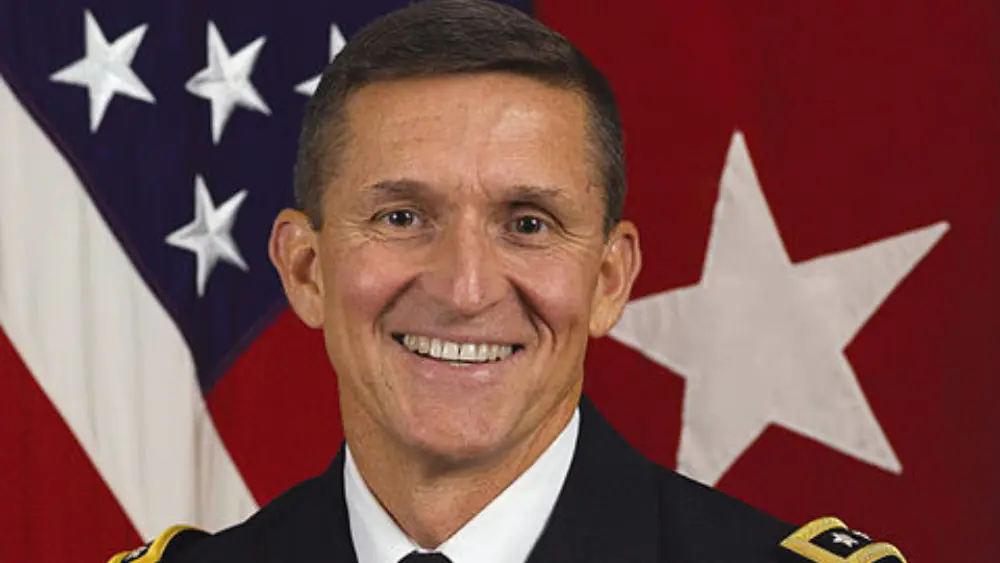Michael T. Flynn, born on December 24, 1958, in Middletown, Rhode Island, is a retired United States Army lieutenant general whose career has been marked by notable achievements in military intelligence and national security, alongside considerable controversy. Rising through the ranks with expertise and dedication, Flynn became a prominent figure shaping America’s defense and intelligence community during pivotal moments in recent history. His journey—spanning military service, intelligence leadership, and political involvement—reflects the complex intersection of security, policy, and public debate in the modern era.
Early Life and Military Service
Michael Flynn’s path to military service began in the northeastern town of Middletown, Rhode Island, where he was raised in a working-class family. His upbringing instilled values of discipline and hard work, qualities that would serve him well in his future endeavors. Upon graduating high school, Flynn enrolled at the University of Rhode Island, joining the Reserve Officers’ Training Corps (ROTC) program. The ROTC experience provided him with military training and leadership skills alongside his academic education.
In 1981, Flynn graduated and was commissioned as a second lieutenant in the U.S. Army, specializing in Military Intelligence—a field focused on gathering and analyzing information critical to national security and battlefield success. Additionally, this marked the beginning of a military career that would span over three decades, characterized by rapid advancement and a focus on intelligence operations.
From these early days, Flynn demonstrated a keen interest and aptitude for intelligence work. His roles required a sharp mind, attention to detail, and the ability to interpret complex data to support decision-making at various command levels. These foundational experiences shaped his later contributions to the U.S. military and intelligence communities.
Rising Through the Ranks: Intelligence Officer
Throughout the 1980s and 1990s, Flynn steadily advanced through a series of intelligence assignments, both in peacetime and during operational deployments. His expertise in interpreting signals intelligence and human intelligence helped him earn recognition from his superiors. As conflicts such as the Gulf War unfolded, Flynn’s role became increasingly significant in ensuring commanders received accurate and timely information.
His approach was often marked by a willingness to challenge conventional wisdom and advocate for proactive intelligence operations. Flynn’s reputation as a determined and sometimes unorthodox thinker began to take shape during this period.
This phase of his career was critical in developing his leadership abilities and deepening his understanding of the complexities of modern warfare and terrorism. It also laid the groundwork for his subsequent appointments to high-level positions in the Department of Defense.
The War on Terror and Pivotal Roles
The September 11, 2001, attacks fundamentally altered the United States’ approach to national security and military operations. In the ensuing War on Terror, Michael Flynn’s career entered a new phase of heightened responsibility and influence.
One of his most consequential roles was as Director of Intelligence for the Joint Special Operations Command (JSOC). JSOC conducts some of the most sensitive and high-stakes missions, including counterterrorism operations worldwide. Flynn’s intelligence leadership was critical in supporting special operations forces targeting terrorist networks.
His insights and guidance helped shape the intelligence framework that enabled key operations against al-Qaeda, the Taliban, and other extremist groups. This period was a crucible, testing Flynn’s ability to manage rapidly evolving threats with precision and adaptability.
In 2012, Flynn reached a career milestone when he was appointed Director of the Defense Intelligence Agency (DIA). The DIA is one of the largest intelligence agencies within the Department of Defense, tasked with producing and managing military intelligence that supports national security objectives.
As DIA director, Flynn faced the challenge of overseeing an agency during a time of increased global instability and technological change. His tenure saw efforts to modernize intelligence practices, enhance interagency cooperation, and improve responsiveness to emerging threats.
Controversies and Departure from the DIA
Despite Flynn’s accomplishments, his career was also marked by controversy, particularly during his time as DIA Director. His outspoken views on terrorism and Middle East policy often diverged from mainstream perspectives within the Obama administration.
Flynn advocated for more aggressive approaches to combating terrorism and was critical of diplomatic efforts he saw as insufficiently forceful. This assertiveness sometimes put him at odds with civilian leadership, creating tension within the Pentagon and intelligence circles.
Ultimately, these disagreements contributed to Flynn’s departure from the DIA in 2014, when he retired from active military service.
Michael T. Flynn: Transition to Political Advisor and the 2016 Campaign
Following his military retirement, Flynn transitioned into the political sphere, leveraging his expertise and network to become an influential voice on national security issues. His views aligned closely with those of Donald Trump, who was then seeking the Republican nomination for president.
Flynn became an outspoken advisor during the 2016 presidential campaign, advocating for a more hawkish approach to foreign policy and national defense. He pushed for aggressive stances on terrorism, immigration, and U.S. alliances, often echoing Trump’s rhetoric.
His influence on the campaign was significant, helping shape messaging on security issues that resonated with key voter demographics. Flynn’s media presence grew as he appeared on news programs and contributed commentary, solidifying his status as a key Trump confidant.
Appointment as National Security Advisor
When Donald Trump won the presidency, Flynn was appointed National Security Advisor—a critical role responsible for coordinating the nation’s security policy and advising the president on foreign affairs. However, his tenure was remarkably brief and contentious.
Flynn took office in January 2017. Shortly afterwards, he became embroiled in controversy over his communications with Russian Ambassador Sergey Kislyak. Reports revealed that Flynn had discussed U.S. sanctions against Russia with Kislyak before Trump’s inauguration. These revelations raised questions about protocol and transparency.
These revelations led to intense scrutiny from Congress and the media. Concerns arose about whether Flynn had misled officials about the nature of his conversations. Amid mounting pressure, Flynn resigned in February 2017, serving less than a month as National Security Advisor.
His resignation marked one of the first major crises for the nascent Trump administration. It also triggered investigations into Russia’s interference in the 2016 election.

Legal Troubles and the Investigation
Following his resignation, Flynn became a central figure in the investigation led by Special Counsel Robert Mueller, probing Russian election interference and possible coordination with the Trump campaign.
The FBI charged Flynn with making false statements about his conversations with the Russian ambassador. In December 2017, he pleaded guilty to lying to federal investigators, a move that initially suggested cooperation with prosecutors.
The legal proceedings surrounding Flynn were complex and politically charged. Flynn’s defense team later sought to withdraw his guilty plea, alleging prosecutorial misconduct. The case became emblematic of the broader partisan battle over the Mueller investigation.
Presidential Pardon and Aftermath
In November 2020, in a dramatic turn, President Donald Trump granted a full pardon to Michael Flynn, effectively absolving him of any criminal liability related to the Russia investigation. The pardon was controversial and sparked debate across political and legal circles.
Supporters hailed the pardon as a correction of an injustice and a restoration of Flynn’s reputation. Critics argued it undermined the rule of law and set a troubling precedent regarding accountability for government officials.
The pardon closed a turbulent chapter in Flynn’s public life but did not end his influence. Flynn remained an active figure in political discourse, often promoting conservative and nationalist causes. He continued to weigh in on matters of national security and foreign policy.
Legacy: A Polarizing Figure in American National Security
Michael T. Flynn’s career is a study in contrasts. His expertise and contributions to military intelligence and counterterrorism are undeniable. Flynn helped lead efforts to modernize intelligence operations and played a critical role during some of America’s most challenging security crises.
At the same time, his penchant for controversy and confrontational style has made him a polarizing figure. His departure from the DIA, brief and contentious tenure as National Security Advisor, and legal troubles have colored public perceptions.
Flynn’s trajectory—from dedicated military officer to influential political advisor and controversial figure—reflects broader tensions in U.S. national security policy and politics. His story highlights the complex interplay between military expertise, political ideology, and public accountability.
Conclusion
Michael T. Flynn’s life and career offer a multifaceted view of service, leadership, and controversy in the modern American military and political landscape. He began his journey in Rhode Island’s ROTC program. Over the decades, he rose to serve at the highest levels of military intelligence and national security. Flynn has shaped and been shaped by the evolving challenges facing the United States.
Flynn is admired by some for his commitment and strategic insights. Others critique him for his contentious decisions and legal battles. He remains a significant figure in American national security. His influence continues to provoke discussion and analysis.
His story highlights the complex intersection between military service and political engagement in the 21st century. Flynn’s transition from decorated general to political lightning rod underscores how national security leaders can become central players in partisan debates. His actions have sparked conversations about the boundaries of military professionalism and political activism. As America continues to grapple with global threats and internal divisions, Flynn’s legacy offers both a case study and a cautionary tale.








